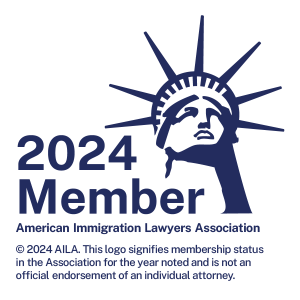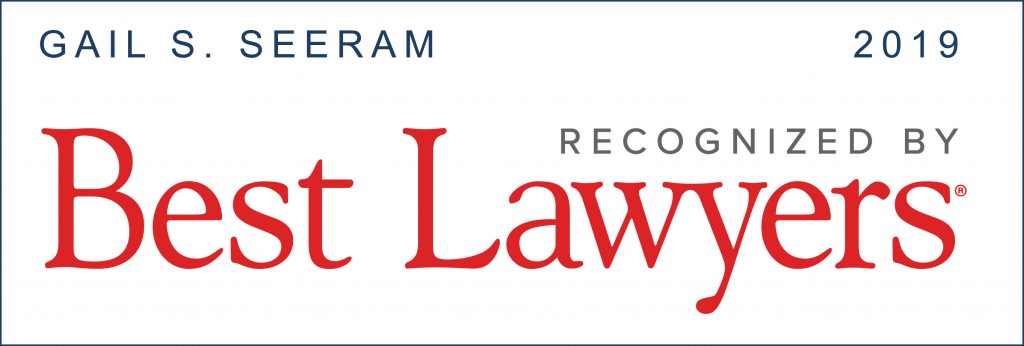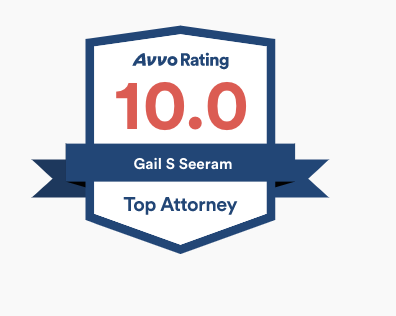 * Effective May 4, the entry into the United States of certain nonimmigrant travelers who have been physically present in India is suspended. U.S. citizens, lawful permanent residents (LPR), and immigrants are not subject to the proclamation. The suspension of entry also does not apply to non-U.S. citizen spouses or unmarried children under the age of 21 of U.S. citizens and legal permanent residents.
* Effective May 4, the entry into the United States of certain nonimmigrant travelers who have been physically present in India is suspended. U.S. citizens, lawful permanent residents (LPR), and immigrants are not subject to the proclamation. The suspension of entry also does not apply to non-U.S. citizen spouses or unmarried children under the age of 21 of U.S. citizens and legal permanent residents.
** We encourage U.S. citizens who wish to depart India to take advantage of currently available commercial flights. Airlines continue to operate multiple direct flights weekly from India to the United States. Additional flight options remain available via transfers in Paris, Frankfurt, and Doha. In general, the U.S. embassy and consulates in India may not assist U.S. citizens in finding commercial flights. If your first choice of travel date is not available, please expand your search options.
*** Effective January 26, all incoming airline passengers to the United States aged two years and older must provide results of a negative COVID-19 viral test taken within three calendar days of travel. Alternatively, travelers to the United States may provide documentation from a licensed healthcare provider of having recovered from COVID-19 in the 90 days preceding travel.
Country-Specific Information
The U.S. embassy and consulates continue to monitor COVID-19 conditions in India. Case numbers in India have increased dramatically since March 2021. In many regions of India, including major cities, healthcare capacity including critical care bed space and availability of oxygen, medicines, and trained medical personnel is currently insufficient to address health care needs due to the increasing numbers of COVID-19 cases.
The U.S. Centers for Disease Control and Prevention (CDC) has issued a Level 4 Travel Health Notice and the Department of State has issued a Level 4 Travel Advisory advising against all travel to India. Level 4 is the highest advisory level due to greater likelihood of life-threatening risks. During an emergency, the U.S. government may have very limited ability to provide assistance. The Department of State provides additional advice for travelers in these areas in the Travel Advisory. Conditions in any country may change at any time.
U.S. citizens who must travel to India are strongly urged to get fully vaccinated before travel and continue to take personal health safety measures to protect themselves, including practicing social or physical distancing, cleaning hands with soap/hand sanitizer, wearing masks, and avoiding crowded areas with poor ventilation. The CDC strongly recommends that U.S. citizens get flu shots to better protect themselves from a major flu outbreak and reduce the need to access the local health system at this time. Finally, U.S. citizens should continue to obey measures introduced by Indian officials designed to mitigate COVID-19 outbreaks in their areas.
Services such as grocery stores, pharmacies, and medical supply stores are generally open throughout India. All schools have closed or moved to an online system. For specific information about classes, please check with your educational institution. Social gathering venues (such as bars and restaurants) are largely closed, and retail shops have limited hours or and/or limits on the number of patrons allowed inside. Many regions of India are not allowing gatherings. Local areas may have additional restrictions to include lockdowns, night curfews, mandatory random PCR testing, and requiring proof of negative test results and/or quarantines if entering from certain Indian states.
Face masks are almost universally required to be worn in public, especially in urban areas, indoors, and on public transportation. These regulations are being strictly enforced, and U.S. citizens should be aware that failure to adhere to mask-wearing norms reflects poorly on foreign residents and is likely to result in a fine.
COVID-19 Testing
- Are PCR and/or antigen tests available for U.S. citizens in India? Yes, tests are available throughout India in both private and government facilities, however, most labs are facing capacity issues and services are delayed.
- If so, are test results reliably available within 72 hours? With increasing demand, test results can be delayed beyond 72 hours. Travelers need to schedule tests with sufficient advance notice and should be aware that testing is generally not possible on Sundays as most labs are closed although certain airports have launched 24- hour testing services with results available in a few hours.
- U.S. citizens should contact their doctor in India to request assistance scheduling a COVID test prior to travel. Citizens who do not have a doctor can locate a testing facility near them by going to the Indian Council for Medical Research website or by calling the Ministry of Health and Family Welfare’s tollfree COVID helpline number by dialing 1075. Testing at government hospitals throughout India is free to the public. Costs for testing at a private facility or in a private residence are set by state governments and range from Rs 400 to Rs 2250 per person.
- Travelers can expect to receive results via phone or email.
COVID-19 Vaccine Information:
- Has the government of India approved a COVID-19 vaccine for use? Yes, the Government of India has approved three vaccines for use in India – Covishield (AstraZeneca), Covaxin, and Sputnik. As of May 1, the Government of India has extended eligibility for COVID-19 vaccinations to all individuals age 18 and older. Eligible individuals seeking the vaccine must register on the Co-Win portal (cowin.gov.in/home) and submit identification. Acceptable forms of ID include Aadhaar card, driving license, voter ID, PAN card, passport, job card, or pension document. Individuals will receive an SMS message with details on the date, venue, and time of vaccination.
- There have been reports of vaccine shortages across the country, which could delay the ability to obtain a vaccination.
- The U.S. government does not plan to provide COVID-19 vaccinations to private U.S. citizens overseas. Please follow host country developments and guidelines for COVID-19 vaccination.
Entry and Exit Requirements
- Are U.S. citizens permitted to enter India? Yes, depending on the purpose of travel.
- Travel to India for tourism and most other short-term purposes is still not permitted.
- However, some additional categories of travelers including certain business travelers, as well as individuals moving to India as residents, are permitted.
- For complete information on travel restrictions and any possible exceptions, please consult the Indian Ministry of Home Affairs or the Ministry of Civil Aviation. The U.S. embassy strongly urges any U.S. citizen considering travel to India to carefully review the information available from the Government of India. Please note these regulations are subject to change with little notice. The U.S. embassy’s ability to intervene on behalf of travelers denied entry into India is extremely limited, and travelers denied entry at Indian ports of entry will likely be immediately reboarded and returned on flights back to the United States.
- Is a negative COVID-19 test (PCR and/or serology) required for entry? Yes, as of February 22, 2021 all international travelers arriving in India, regardless of vaccination status, must upload a negative RT-PCR report to the Air Suvidha portal taken within 72 hours of the start of their journey. Additional testing on entry/quarantine may apply depending on country of embarkment/transit.
- All international passengers must visit in/airsuvidha/allairports and submit a self-declaration form at least 72 hours prior to departure for India.
- Are health screening procedures in place at airports and other ports of entry? Yes, the type of screening depends upon where the traveler is coming from and/or transiting through.
- Travelers coming from or transiting through the UK, Europe, Brazil, South Africa, or the Middle East must submit to and pay for a confirmatory molecular test upon arrival. All other international travelers must submit to thermal (fever) screening upon arrival. Passengers who are symptomatic or screened positive for fever or virus will be taken to designated isolation facilities for further evaluation and testing.
- The information on these passengers will be shared with Ministry of Health and Family Welfare staff for further follow-up.
- See the chart below for further details
Movement Restrictions
- Is a curfew in place? Yes, in some states and localities.
- Are there restrictions on intercity or interstate travel? Yes, some states require a current negative test result if entering from other Indian states or for travelers to quarantine for 14 days.
Quarantine Information
- Are U.S. citizens required to quarantine? Yes, U.S. citizens traveling from or transiting through the UK, Brazil, and South Africa will have to quarantine at least seven (7) days, even if they test negative upon arrival. Any U.S. citizen who tests positive for COVID upon arrival or who presents with a fever during thermal screening will be subject to quarantine. (See the chart above.)
- Additionally, U.S. citizens who test negative for COVID but were seated in the same row as, three rows before, or three rows behind a traveler arriving from the UK, South Africa, or Brazil who tests positive for COVID upon arrival will also be placed in institutional quarantine for at least seven (7) days pending additional testing.
- Some states require quarantine for all individuals arriving from outside their borders with no exemptions. During the 14-day quarantine period, travelers are not permitted to use any form of public transportation or appear in any public location.
Transportation Options
- Are commercial flights operating? Yes, within India. A reduced number of international flight options are available. Airlines may have strict policies regarding who can book / board these flights based on Indian government restrictions. Please check flight availability with airlines or with travel agents/sites. If your first choice of travel dates is not available, please continue to search for availability. In general, the U.S. embassy and consulates may not assist you with booking commercially available flights. States may have additional testing and/or quarantine requirements.
- Is public transportation operating? Yes, though hours of operation vary throughout India depending on regional COVID measures. Please follow local media for measures in your area and verify with official Government of India sources.
Fines for Non-Compliance
- Individuals in public spaces without a mask may be fined per instance of non-compliance. The amount differs by region (currently Rs 2000 per instance in New Delhi).
- Individuals who break quarantine may be fined and/or detained. The severity of the punishment for non-compliance will depend upon the state government policies and level of danger the lack of quarantine posed to the public.
Consular Operations
- U.S. Embassy New Delhi and the U.S. Consulates in Chennai, Hyderabad, Kolkata, and Mumbai are closed for routine visa and citizen services at this time BUT continue to provide emergency services to U.S. citizens.
- U.S. citizens and visa applicants who are granted emergency appointments at U.S. Embassy New Delhi or any U.S. consulate in India must wear masks upon entering the premises and are prohibited from entering these facilities if they have symptoms of COVID-19 or have been exposed to anyone known to have tested positive for COVID-19 in the previous 14 days.
Local Resources
The Indian Ministry of Health and Family Welfare has a 24/7 hotline at +91-11-2397-8046 with English-speaking operators or can be reached at [email protected].
The Indian Medical Association also has a 24/7 hotline for individuals to speak with a doctor at +91 99996-72238 or +91 99996-72239.














